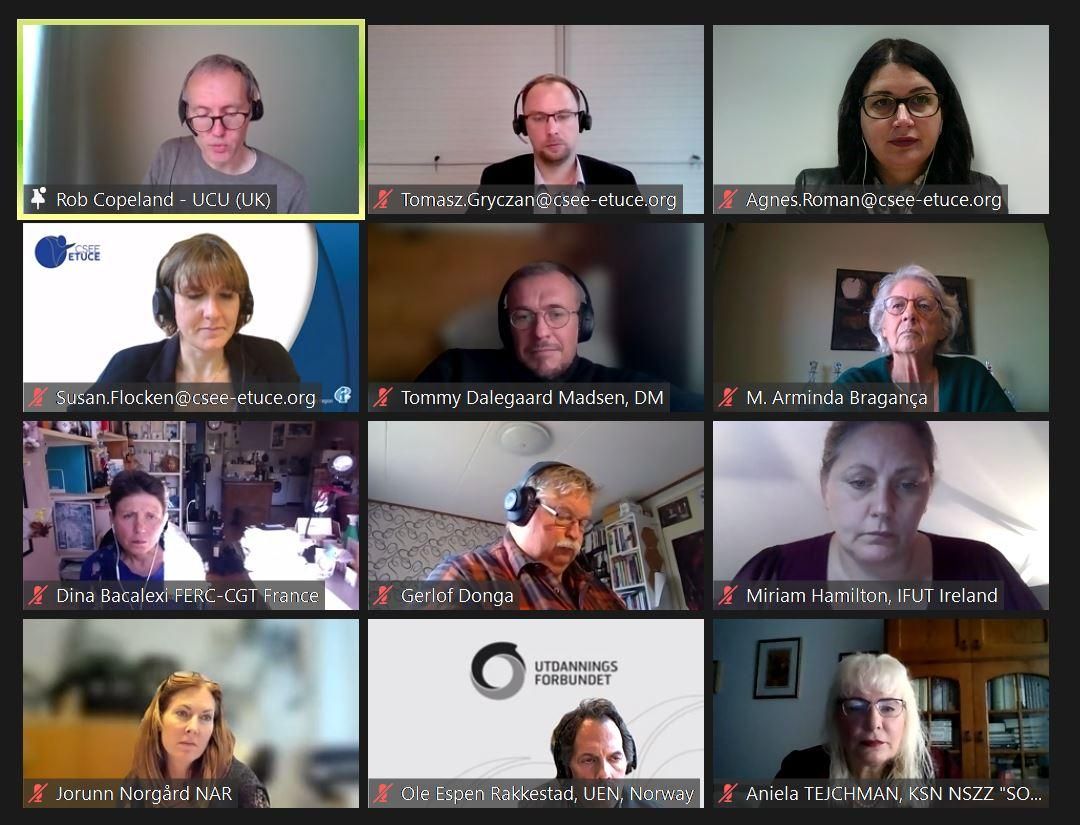
Precarious employment threatens research and higher education
The Higher Education and Research Standing Committee (HERSC) of ETUCE’s member organisations met on 19-20 October 2021 to discuss some of the key issues faced by researchers and academics in the higher education sector.
The meeting provided an opportunity for trade unions, representing staff from the higher education and research sectors, to discuss various topics, including how the higher education landscape has been impacted by the COVID-19 pandemic. HERSC members addressed the threat precarious employment poses to the health and wellbeing of researchers and teachers in higher educational institutions. This was done in response to the Roadmap produced by the Commission regarding upcoming European Council Recommendations on the Pact for Research and Innovation. ETUCE member organisations discussed the Council conclusions on the European Universities initiative which was adopted by the Education Council in May.

HERSC members also debated about the increase in workloads and in work-related stress, overall negative psychosocial work environments, and increase of precariousness among the academics. The members argued that this is largely caused by the high pressure of funding university research by external financial contribution. As there is a lack of public funding for research, academics are often employed under fixed term contracts. This makes it harder for them to undertake high quality teaching and research, as outlined in the OECD policy report published in May 2021 on “Reducing the precarity of academic research careers”. Trade unions of staff in higher education and research demand that ministries and higher education institutions end precariousness of the profession by ensuring sustainable public funding to higher education and research, and by guaranteeing that academics have sustainable employment rather than project based income. This is particularly necessary now that the COVID-19 crisis has exacerbated the situation in many universities.
The commercialisation of research and higher education as a result of the increase of private funding puts academic freedom and institutional autonomy at risk. However, education trade unions are continuing to fight for job security for academics and researchers both at national and European levels. Based on the non-compliance with the 1997 Recommendation concerning the Status of Higher-Education Teaching Personnel (unesco.org), breaches of academic freedom have been brought to the attention of the ILO and UNESCO. This will have an impact on the implementation of the Rome Communique wherein ministers of 49 countries of the Bologna Process admitted that improving learning and teaching in higher education has to work hand-by-hand with ensuring for the staff “stable employment and career opportunities, parity of esteem for teaching and research, attractive working conditions, access to up-to-date staff development, and recognition of their achievement”.
With the continuing digitalisation of university teaching, academics require permanent contracts, decent salaries, and continuous professional development for quality teaching and research. Strong social dialogue is needed to facilitate cooperation between education trade unions and governments. Education trade unions will continue to lobby governments and academic institutions to protect workers in higher education through these challenging times.